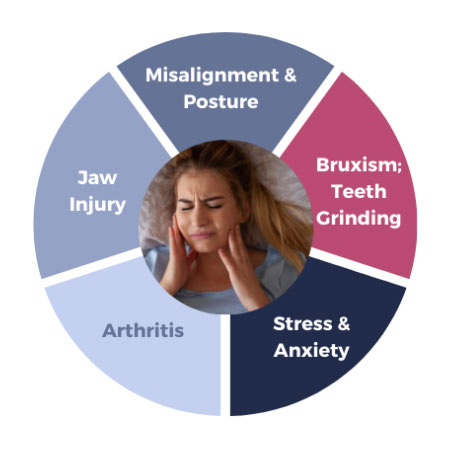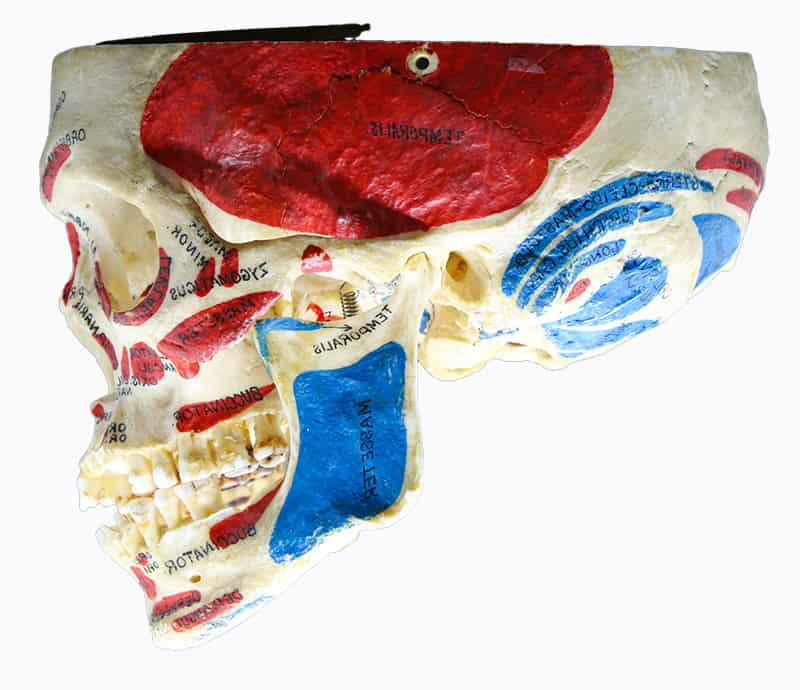Simple and Easy Solutions for TMJ and TMD Problems
Face and Jaw Pain? Not With Our TMJ Specialist!
Do you hear a popping or clicking sound when you open or close your mouth?
Do you experience pain when moving your jaw joint?
It is due to a condition called a temporomandibular joint disorder. We understand and agree with you that it is one of the most frustrating conditions to have. Don’t get anxious! We are here to care for you and help you in resolving this problem.TMJ is the anatomical abbreviation for the Temporomandibular joint. TMJ is a joint connecting your lower jawbone to your skull base in front of your ears. TMJ is an essential joint because it is responsible for all your jaw movements like chewing, speaking, yawning, and swallowing. It is also responsible for moving your lower jaw forwards, backward, upwards, or downwards.
Temporomandibular disorders (TMD) are long-time (chronic) facial pains associated with diseases of jaw joints, muscles, and nerves of the jaw. There will be inflammation of jaw joints or muscles in this condition

Causes of TMJ Dysfunction
The causes of TMD can be single or multifactorial. Following are the various causes of TMD
- Loss of teeth leads to loss of the balance between the jaw and jaw muscles
- Developmental causes
- Infections of the jaw joint
- Direct or indirect injury (trauma) to the jaw
- Bad sleeping habits or positions
- Bad posture
- Frequent clenching or grinding of teeth
- Snoring (sleep apnea)
- Various types of arthritis
- Prolonged duration of mouth opening – during dental procedures or insertion of breathing tube for surgery
- Stress
- Compromised general health – hormonal imbalances, immune disorders, and other muscular disorders.
- Bad habits like chewing pens, nail biting, lip biting etc.
Signs and symptoms of Temporomandibular Disorder
There are various symptoms to determine whether you are experiencing TMD. They are
- Pain
- Headaches
- Stiffness in jaw muscles
- Lightheadedness or dizziness
- Blurred vision
- Clicking (painful or painless), popping, or grinding noises in Jaw
- Reduction in jaw movement or locking of the jaw in a position
- Abnormal deviation of the jaw
- Difficulty while eating due to change in jaw position.
Benefits of getting
TMD treated
Management of TMJ disorder can comprise of either conservative treatment, alternative treatment, or surgical treatment or a combination.

Learn more about TMJ
- Signs and symptoms of Temporomandibular Disorder
- Potential Co-existing Health Conditions with TMJ disorders
- Health Complications That have Possible Association with TMJ Disorder
- Types of TMJ Disorders
- TMJ Diagnosis
- Conservative therapy for TMJ disorders
- Alternative therapies for TMJ dysfunction
- Surgical Treatments for TMJ disorder



